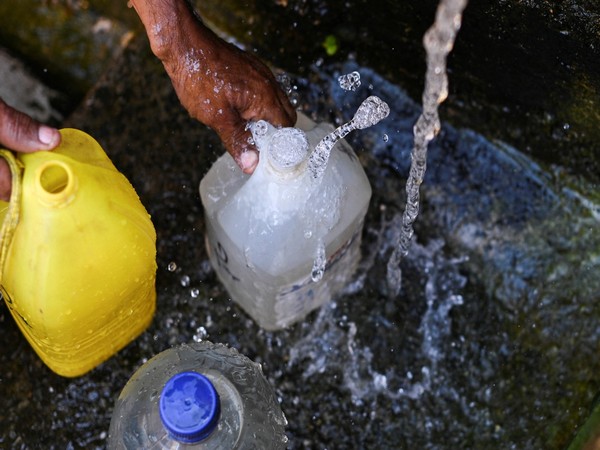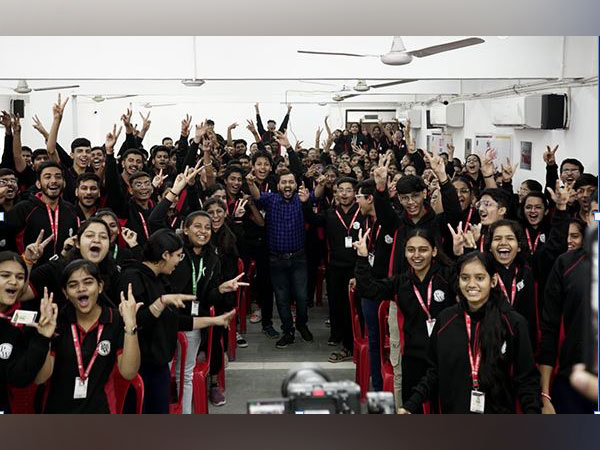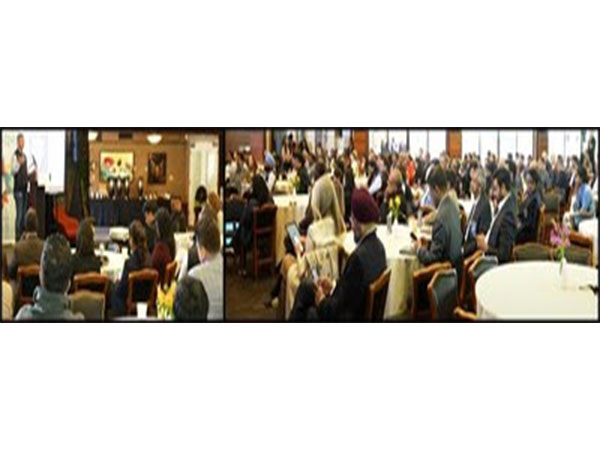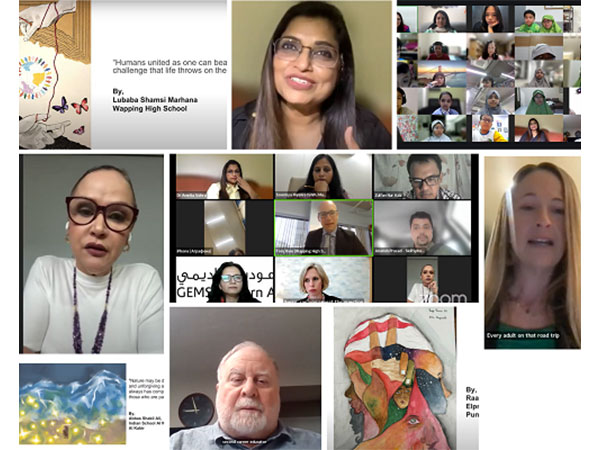Gazans in despair as water supplies dwindle
Oct 17, 2023

Rafah [Gaza Strip], October 17: In the southern Gaza Strip, scores of people line up at bathrooms, many of them not having showered for days after Israel cut off water, electricity and food following Hamas's deadly assault. Ahmed Hamid, 43, fled Gaza City with his wife and seven children, heading to Rafah after the Zionist army on Friday warned residents of the north of the enclave to head south "for their own safety". "We haven't showered in days. Even going to the toilet requires waiting your turn in a line," Hamid told AFP. "There is no food.
All goods are not available and the costs of what is available have surged. The only foods we find are tuna cans and cheese. "I feel like a burden, unable to do anything." The UN estimates that about one million people have been displaced since the Zionist occupation began a ruthless aerial bombardment of Gaza in retaliation for Hamas's deadly assault on Oct 7. The Hamas attack left more than 1,400 people dead on the occupation's side. On the Gazan side, at least 2,670 have died in the relentless bombing, the majority of them ordinary Palestinian civilians.
The occupation also cut off all water, electricity and food supplies to the densely-populated coastal enclave. Mona Abdel Hamid, 55, left her home in Gaza City, heading for her relatives' house in Rafah. Instead, she found herself in the home of people she did not know. "I feel humiliation and embarrassment. I'm looking for refuge. We don't have a lot of clothes and most of them are dirty now, with no water to wash them," she said. "No electricity, no water, no internet. I feel like I'm losing my humanity."
'Lives in displacement'
Since Friday, Sabah Masbah, 50, has lived with her husband, daughter and 21 other relatives at a friend's home in Rafah. "The worst and most dangerous thing is that we can't find water. None of us bathe now because the water is so scarce," she told AFP. At his home in Khan Yunis, near a school run by the UN agency supporting Palestinian refugees, Esam said: "We received guests who were displaced from the Gaza City area, the Al-Rimalneighborhood and Tal al-Hawa." But "water is a problem", said the 23-year-old who did not wish to give his full name. "Every day we think of how to get water . If we bathe, we won't drink."
Those who have sought refuge at the UNRWA schools also desperately seek food and water. The UN agency's director of communications, Juliette Touma, told AFP more people are likely to become displaced "as people continue to leave their homes". The occupation is massing forces and weapons at the border with Gaza ahead of an expected ground offensive. Despite the Zionist evacuation order, there were air strikes in the south, including in Rafah, where one resident said a doctor's house was targeted. "All the family was wiped out," said Khamis Abu Hilal.
Alaa al-Hams pointed to the fresh signs of shelling on a neighborhood in Rafah. "I look at the massive destruction. They say there is terrorism here. Where is the humanity they speak of?" he said. "All are civilians here, with nothing to do with any organizations, but they died . no one is left alive." Samira Kassab stands on the remains of what was once her home in Rafah, asking: "Where will we go? Where are the Arab countries?
"We have spent our whole lives in displacement. Our home, which housed all my children, was struck . We slept in the street and there is nothing left," she said. "We are isolated. My daughter has cancer and I can't take her to the hospital. I myself suffer from hypertension and diabetes." But she defiantly raised the victory sign with her hand. Surrounded by her grandchildren she said: "I won't leave no matter what, even if I die. We beg for bread from our neighbors, but we will not part with a grain of sand." - AFP
Source:Kuwait Times









